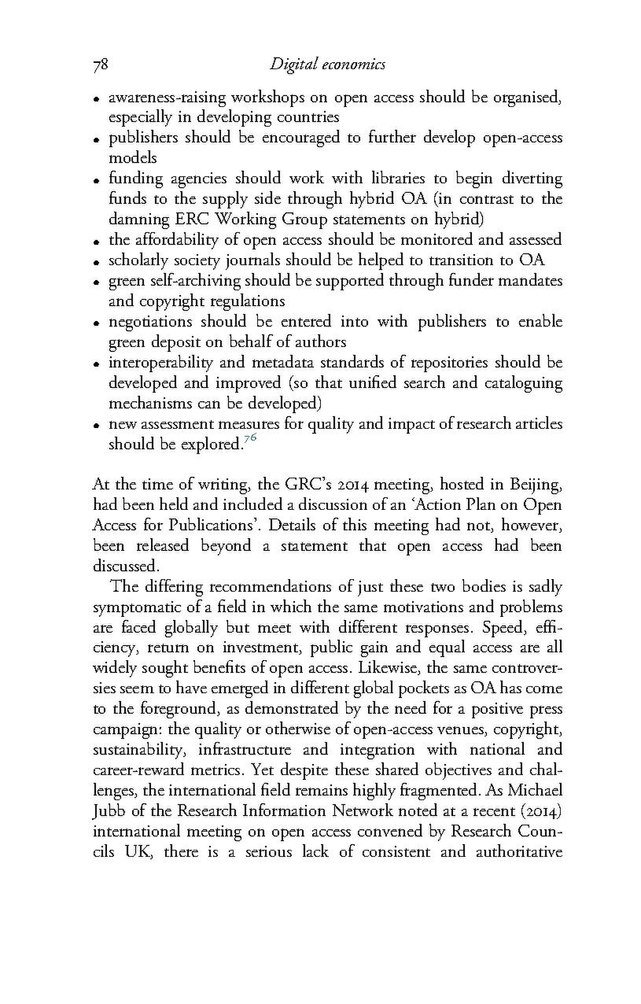- awareness-raising workshops on open access should be organised, especially in developing countries
- publishers should be encouraged to further develop open-access models
- funding agencies should work with libraries to begin diverting funds to the supply side through hybrid OA (in contrast to the damning ERC Working Group statements on hybrid)
- the affordability of open access should be monitored and assessed
- scholarly society journals should be helped to transition to OA
- green self-archiving should be supported through funder mandates and copyright regulations
- negotiations should be entered into with publishers to enable green deposit on behalf of authors
- interoperability and metadata standards of repositories should be developed and improved (so that unified search and cataloguing mechanisms can be developed) for quality and impact of research articles
- new assessment measures should be explored.76
At the time of writing, the GRC’s 2014 meeting, hosted in Beijing, had been held and included a discussion of an ‘Action Plan on Open Access for Publications’. Details of this meeting had not, however, been released beyond a statement that open access had been discussed.
The differing recommendations of just these two bodies is sadly symptomatic of a field in which the same motivations and problems are faced globally but meet with different responses. Speed, efficiency, return on investment, public gain and equal access are all widely sought benefits of open access. Likewise, the same controversies seem to have emerged in different global pockets as OA has come to the foreground, as demonstrated by the need for a positive press campaign: the quality or otherwise of open-access venues, copyright, sustainability, infrastructure and integration with national and career-reward metrics. Yet despite these shared objectives and challenges, the international field remains highly fragmented. As Michael Jubb of the Research Information Network noted at a recent (2014) international meeting on open access convened by Research Councils UK, there is a serious lack of consistent and authoritative
